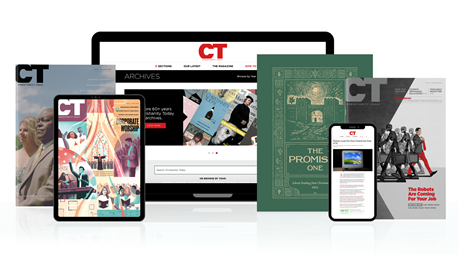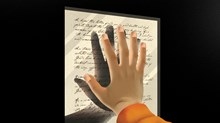|
The viewing of pornography on the Internet by adults and minors is common in many of the country's public libraries, according to a nationwide survey by an Oregon librarian.More than 2,000 documented incidents of library patrons accessing pornography, obscenity and child pornography were found in a six-month investigation, author David Burt said in his recently released report for the Family Research Council (FRC). The results were announced at a news conference sponsored by FRC, a Washington-based, pro-family, public-policy organization.The problem in America's libraries may be much worse than these figures indicate, Burt said in the report. Although nearly all public library systems in the country were contacted with Freedom of Information Act requests, only 29 percent responded to Burt's survey. Based on the responses, plus his analysis of computer log files from three urban libraries that uncovered thousands of unreported incidents, the separate incidents of library patrons viewing pornography on the Internet could total from 400,000 to 2 million a year, Burt estimated.The documented incidents "are just the tip of the iceberg," Burt said in a prepared statement.That documentation, according to the report, included the following types of incidents witnessed by librarians:
- Adults trading in child pornography.
- Adults teaching children how to access pornography.
- Adults and minors masturbating at Internet terminals.
The report also cites 472 instances of children accessing pornography and 106 cases of adults exposing children to porn. More than 170 of the incidents found by Burt described criminal offenses such as public masturbation and accessing obscenity or child pornography, but the police were notified in only six of these cases. A major reason for the widespread failure to crack down on Internet porn in libraries is the American Library Association, Burt said. The ALA also was a major factor in the mediocre response to his FOIA requests, Burt said. The ALA opposes filtering software, which Burt and FRC recommended as the solution for the problem. The ALA also has a policy supporting the right of any person, regardless of age, to access information in a library.The ALA "has exhibited an appalling lack of leadership within our profession," librarian Wendy Adamson said in a statement released at the news conference on behalf of 47 employees of the Minneapolis Public Library. "Not only has it failed to acknowledge the extent of the problem, but it has established a party line which categorically discourages consideration of any kind or extent of filtering as a solution. Rather than facilitating an open and inclusive forum for discussion, the ALA has circled the wagons, thus disenfranchising thousands of librarians who do not agree with the official stance.""The truth is that America's libraries are increasingly becoming dirty bookstores and peepshows open to children and funded by taxpayers," FRC spokesperson Janet Parshall said in a written statement.Longtime librarian Heidi Borton resigned in protest of her library's Internet policy because it involved her in "moral compromise," she explained at the news conference. She left after nearly 10 years as a librarian in the King County system of the Seattle area."Picture this. You are a librarian who sees a 10-year-old boy not two feet from a man viewing a full screen of sexual intercourse," Borton said in a prepared statement about events that happened to her colleagues and her. "Or you see a young woman, who happens to walk by a porn-viewing Internet user, become visibly upset, throw down her books and run from the library. When you go to retrieve the books, you find they are on recovery from rape. Or you face the distasteful task of 'unlocking' a screen locked in an orgy Web site. Or you must answer the disgusted teacher who reports to you one evening that teenagers are viewing porn in full view. Your only allowed answer: The lame excuse that libraries must not hinder anyone's rights to view anything on the Internet and that, despite the preponderance of unaccompanied minors in the library, it is solely a parent's responsibility to supervise their children."Adamson, in her statement on behalf of 47 employees of the Minneapolis Public Library, said her colleagues and she have seen an "alarming increase" in the last two years in the number of people viewing pornography online at the library and it has been "indescribably disturbing" for them. The library board and director have refused to install filtering software to block access to porn sites, she said.Concerning his survey, Burt said in his statement the ALA "sent out a memo to public libraries urging libraries to 'identify exemptions' to the FOIA requests, such as 'out-of-state requestors.'" In addition, 21 of the 33 state libraries that responded to Burt acknowledged coordinating their responses to his FOIA requests, according to his report.The ALA wants children to have an "effective and safe Internet experience," but filters are "an incomplete and insufficient approach," ALA President Sarah Long told Baptist Press. "Filters don't really teach anything about the Internet."The association has no authority over local libraries and thinks decisions about installing filters "are best made locally," Long said.What the ALA hears is the biggest computer problem for libraries is there are "not enough computers, and they are too slow," Long said. The ALA is "not hearing that pornography on the Internet is a big problem," she said.In a written statement released on the same day as Burt's report, the ALA said many libraries asked for help with his FOIA requests. The association "has never told libraries or librarians to ignore Freedom of Information requests. The ALA advised libraries to consult with local attorneys since FOI laws are state and local, not federal," the statement said.The "imaginary problems" cited by opponents of filters contrast with the "many real, well-documented incidents of real harm being inflicted on children by unfiltered Internet access in public libraries," Burt said in his report. "The failure of librarians to control these problems supports the appropriateness of laws requiring filtering software."Burt, a member of the ALA, is the information technology librarian at the Lake Oswego (Ore.) Public Library.Copyright © 2000 Baptist Press. Used with permission.
Related Elsewhere
See the
Dangerous Access report (in on the Family Research Council site, as well as a
press release summarizing the findings.Burt's
Filtering Facts site also offers the report, with related news and links.The report received media coverage in
USA Today,
The Washington Times, and other publications.The American Library Association's
Office for Intellectual Freedom site offers a kind of rebuttal.For more on Internet decency, see the
Yahoo! full coverage area on the subject.
Send us email!
Copyright © 2000 Christianity Today. Click for reprint information.

Annual & Monthly subscriptions available.
- Print & Digital Issues of CT magazine
- Complete access to every article on ChristianityToday.com
- Unlimited access to 65+ years of CT’s online archives
- Member-only special issues
- Learn more
Read These Next
- Trending
 Preaching on sex and gender led to local uproar and national headlines. Here are seven things I learned.
Preaching on sex and gender led to local uproar and national headlines. Here are seven things I learned. - From the Magazine
 Reading Philippians from Paul’s prison context should encourage the church to care better for the incarcerated.
Reading Philippians from Paul’s prison context should encourage the church to care better for the incarcerated. - Editor's Pick
 French evangelicals are working together to show people Jesus at 2024 Olympic Games.Français
French evangelicals are working together to show people Jesus at 2024 Olympic Games.Français













